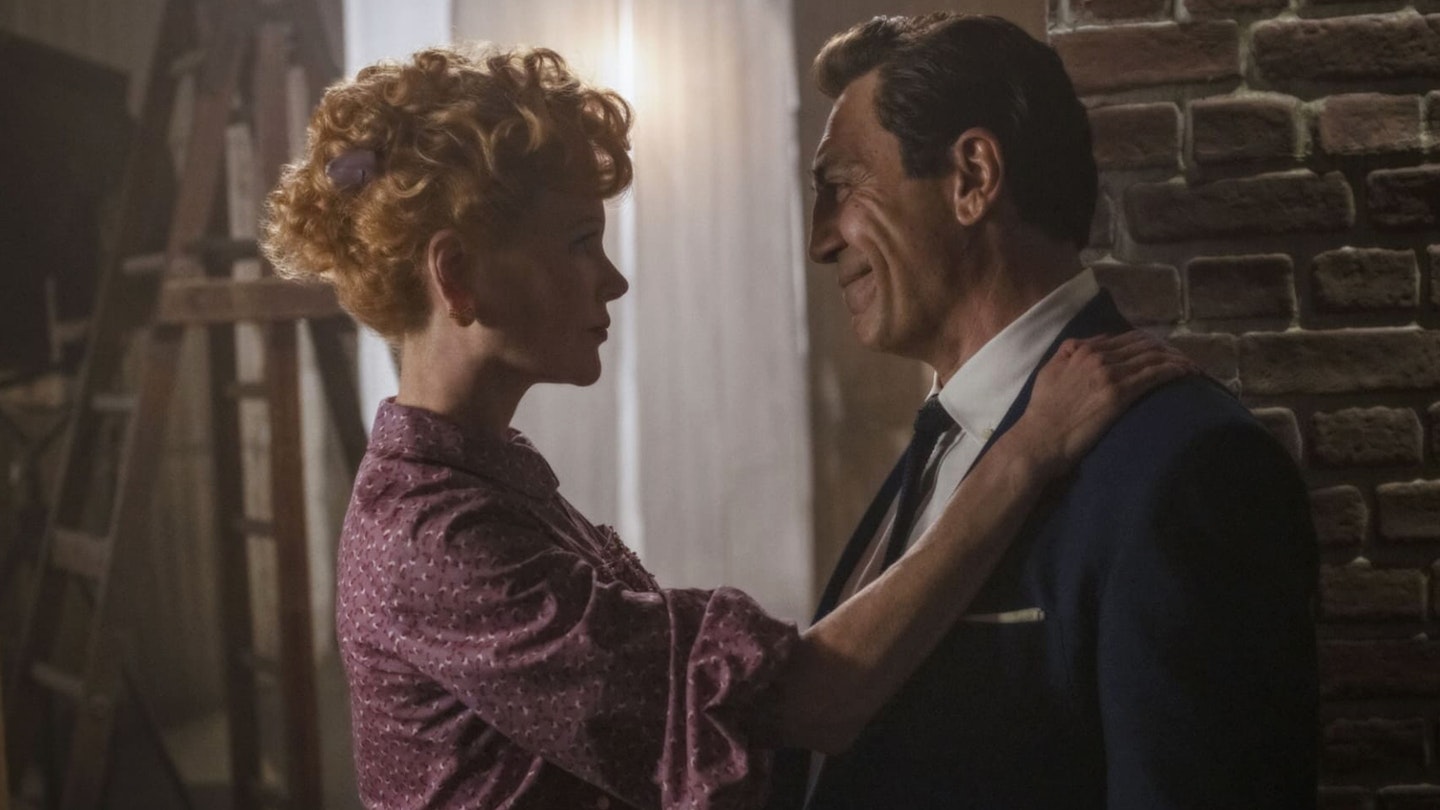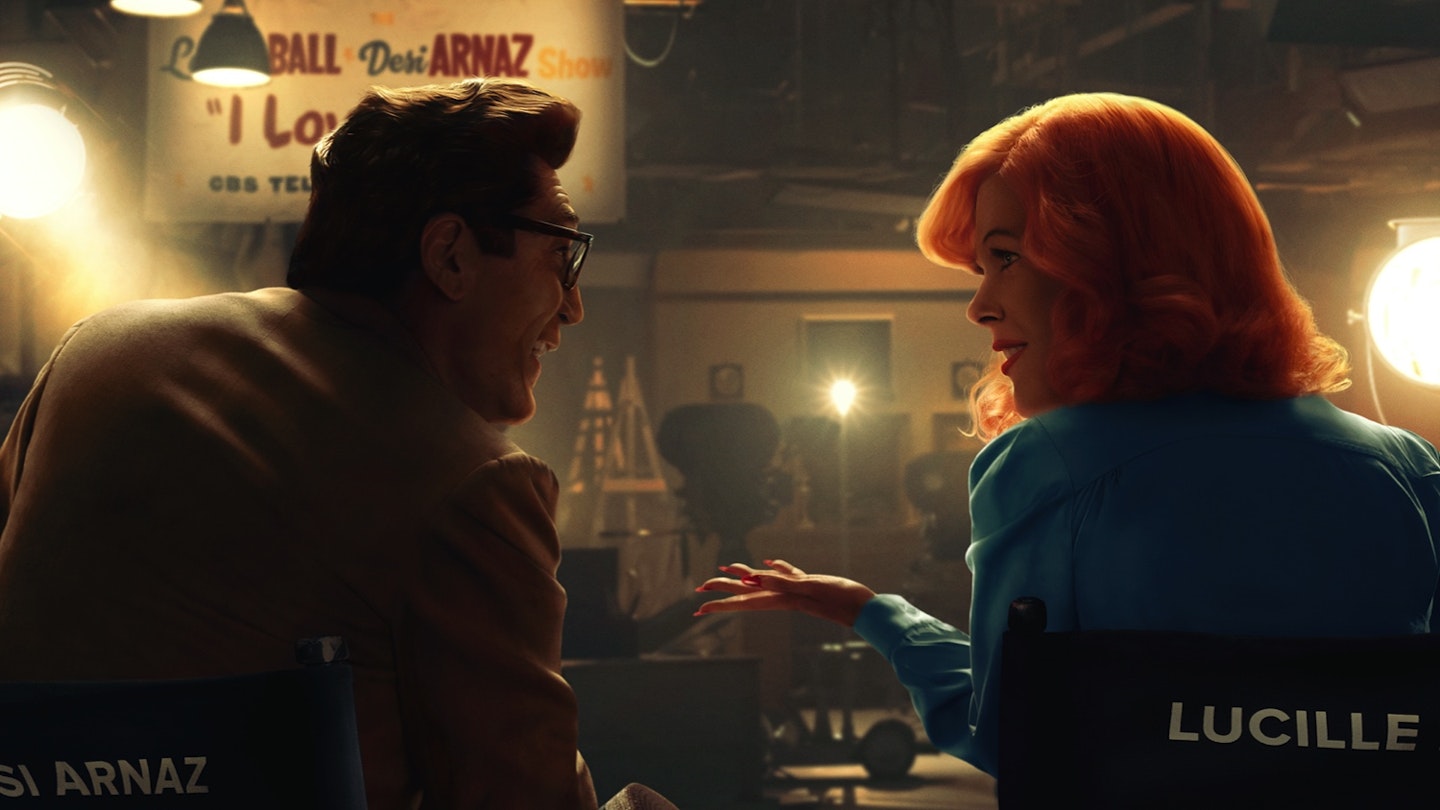In TV terms, there has probably never been anybody more famous than Lucille Ball. As television became America’s primary source of entertainment in the 1950s, Ball was its biggest star, the title character of number one show I Love Lucy. At its peak, 75 per cent of all television owners were tuning in. Aaron Sorkin’s Lucille Ball movie is not so much about how a B-movie actress became huge on the small screen, but about the fragility of that stardom. The nation loved Ball as a hapless TV housewife. If her real, imperfect self were to intrude on that illusion, it could all be over.

Sorkin’s story takes place across one week, with a smattering of flashbacks and flash-forwards. It’s 1952, and I Love Lucy is at its height. Behind the scenes, nobody is smiling. Ball (Nicole Kidman) and Desi Arnaz (Javier Bardem), her husband both on screen and off, are having troubles. She suspects him of having affairs, with good reason. Add to that the fact that the papers have got wind of Lucy’s historic connection to the Communist Party. It’s perfectly innocent, but at a time when the government is hunting down reds, this redhead is vulnerable. At the end of this week, Lucy’s career and marriage could be over.
Sorkin largely keeps all this in balance by always staying centred on Lucy and Desi.
Sorkin’s witty script is complex but it’s not complicated. He’s got a lot of themes going on here: the shifting power-dynamics of a couple on and off screen; Hollywood misogyny; corporate hypocrisy (the show’s sponsor won’t allow Lucy’s pregnancy to be mentioned on screen, because the implication of sex is obscene, but they’d love her to promote their cigarette brands); media manipulation; and much more. Very occasionally the volume of storylines slows the pace, but he largely keeps all this in balance by always staying centred on Lucy and Desi. Sorkin’s work can sometimes lack heart, observing distantly, but here he dives into his central couple. Their relationship has many faces — private, public, corporate — and he tears off layers trying to get to the core of a couple desperately in love but collectively too damn much to fit in one marriage.
Don’t come expecting impressions. Red hair aside, Nicole Kidman isn’t much of a visual match for Ball. She doesn’t have her hyper-expressive features and she’s considerably more willowy. Who cares? Kidman can wriggle into any role until it fits her perfectly. She only briefly plays Ball’s sitcom persona. Off-camera, Ball is no clown. She has no interest in entertaining until the cameras are rolling. Kidman plays the conflict of a woman who knows her power but also fears outshining her husband and losing him. Bardem’s Arnaz gives depths to a man often considered lucky to tag on to his wife’s success.
What makes Being The Ricardos such a good biopic is that it’s not just a soup-to-nuts life story. It uses the Ricardos to open a door into an entire industry and a transformative time in history. Minimal prior knowledge of its subjects is required to enjoy it. Even if you don’t love Lucy, there’s plenty to love about this.


